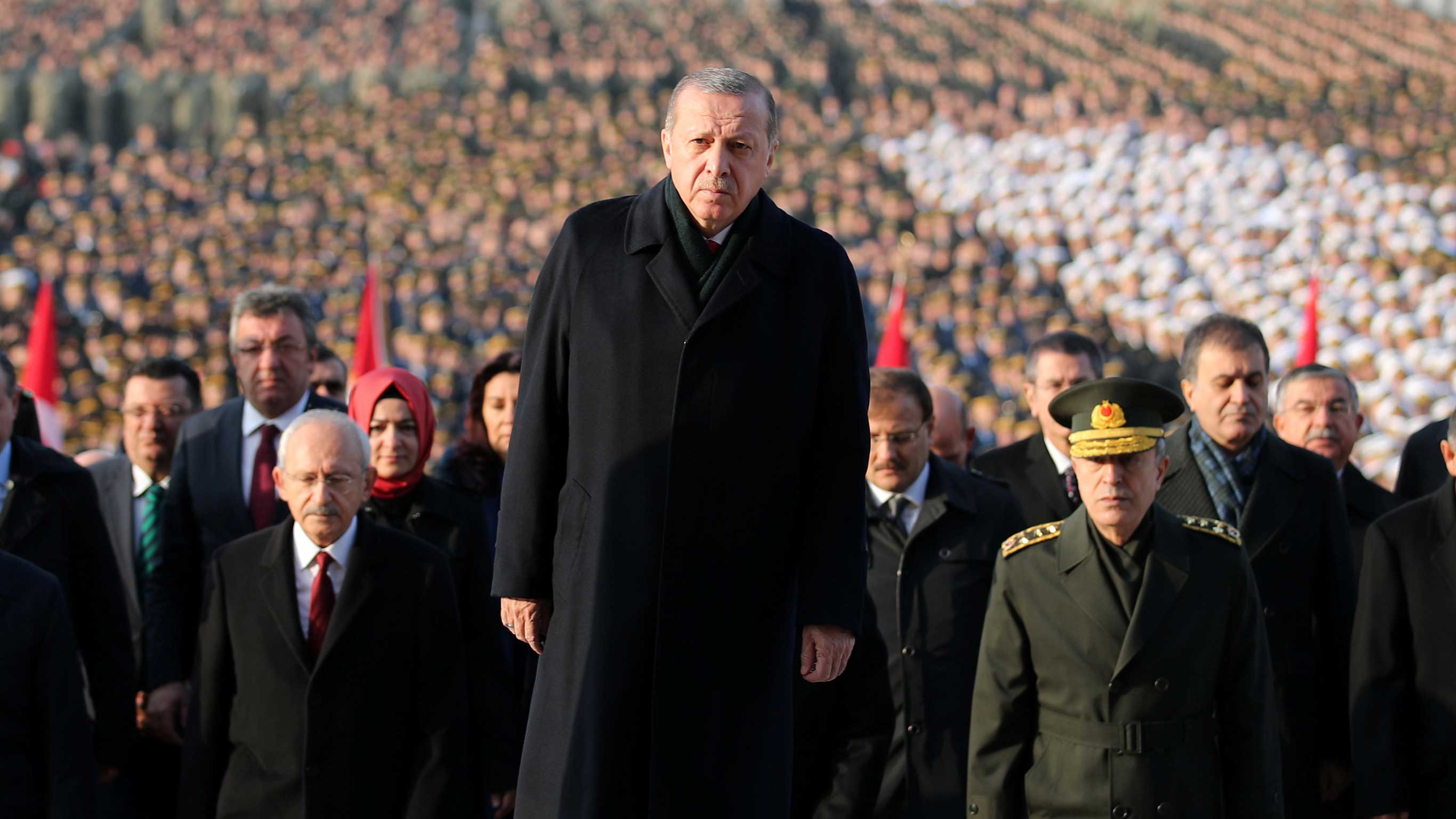What happened to Turkey’s soft foreign policy? Not so long ago, Turkey’s famed “no problems with neighbors” policy was the darling of international geopolitics. In the 2000s, President Recep Tayyip Erdogan spent a decade building Istanbul into a global nexus point of travel, trade and influence. State-owned Turkish Airlines began flying to places like Mogadishu to project the country as a unifying force on the international stage. At home, Turkey invested in energy infrastructure to position itself as a vital transit hub linking hydrocarbon-rich areas in the Middle East with Europe.
Everything was going so well … until it wasn’t. Turkey backed the wrong side in the Arab Spring and then found itself isolated after the Muslim Brotherhood was crushed in Egypt and elsewhere. This geopolitical isolation was compounded by Erdogan’s increasing aggressiveness. Nowhere is this more apparent than in the complex sphere of hydrocarbons in the Eastern Mediterranean.
This week, Turkey sent a maritime drilling vessel, flanked by military ships, to start exploring for natural gas in contested waters off the coast of Northern Cyprus. Ankara responded to the international outcry by stating that the move was in line with a new agreement between Turkey and Libya to establish maritime corridors between the two countries. Any natural gas in the area, in Turkey’s view, belongs to citizens of the Turkish Republic of Northern Cyprus, a country recognized by nobody apart from Turkey and the source of deep tension between Turkey and the rest of Cyprus, the internationally recognized Republic of Cyprus.
A number of overlapping narratives underline Turkey’s unusually aggressive actions here.
In the late 1990s, Israel discovered a rich natural-gas field off its northern coast. While Turkey is blessed with an ideal geographic location, it has no hydrocarbon resources of its own. Therefore, the Israeli gas discovery presented an ideal opportunity for Turkey to transform itself into a vital energy hub, shuttling natural gas from Israel and oil from Iraq into Europe. That required a complex agreement among Israel, Turkey, Greece and Cyprus to build a pipeline under the Eastern Mediterranean. After years of negotiation and deadlock, the deal was signed in late 2019 – but without Turkey.
Ankara reacted by making a deal with Libya to create sea corridors and eventually a pipeline from the North African coast straight through the gas-rich waters of the Eastern Med and on to Turkey. Until this week, few parties, including the European Union, thought Turkey would actually push ahead and attempt to take ownership of these sea lanes. Well, everyone was wrong. Turkey’s “no problems with neighbors” policy appears to have gone out of the window.
If we look at these events from the larger perspective of Erdogan’s rule over Turkey, we see a leadership strategy in tatters. Erdogan and his Justice and Development Party (AKP) consolidated power through sound economic policy, infrastructure development and soft-power foreign policy. There was also a good deal of religious conservatism attached to this platform, but as long as the economy and Turkey’s standing in the world was not affected, the majority of Turks didn’t seem to mind.
That changed, however, with the anti-government protests in 2011. It became clear that Erdogan had ambitions of creating a “new Ottoman empire,” as he crushed dissent at home and assumed the Arab Spring would present a unique opportunity drastically to re-engineer the region with Turkey – the emerging regional superpower following a decade of growth – at the center.
When it became clear that he had presumed wrongly, instead of changing course, Erdogan was more concerned about consolidating his own power. He changed the political system to grant himself almost absolute authority. As a consequence, the Turkish economy is struggling, the AKP has lost control in Istanbul, and the gas pipelines of the Eastern Mediterranean are gone.
It is hard to overstate how critically important those pipelines were both to Turkey’s economy and its self-image. They would have given the country a regular source of capital with which to fund ostentatious projects such as a new canal in Istanbul.
Instead of flouting international law, Turkey needs to get back to what it does best. For example, the country has a booming agricultural and agritech sector thanks to its bountiful water supply. Focusing on strengthening that sector could enable Ankara to reposition itself as a regional leader and facilitate much-needed foreign investment. It certainly would benefit the country far more than getting involved in futile geopolitical adventurism.
Of course, such a shift would require Erdogan and his party acolytes to drop their neo-Ottoman ambitions. If the latest misadventures in Libya are any guide, this will be a very tall order.
By JOSEPH DANA
Source: Asia Times



